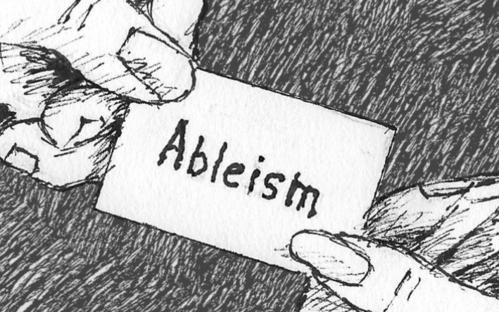Ableism and Disability
Name
Institution
Ableism and Disability
Imperial Rome and the Disabled (200 – 500 CE)
Ableism and Disability代写 In the ancient Roman, there was a large number of disabilities among the adults than it is in the world today (Brignell, 2008).
Basic History and Definition of Disability in Imperial Rome
In the ancient Roman, there was a large number of disabilities among the adults than it is in the world today (Brignell, 2008). Although there is a fact that, the modern medicine has facilitated the survival of children with disabilities, who would have died in the ancient times due to “malnutrition, disease, inbreeding, physical exhaustion, accidents, dangerous sports, warfare, and childbirth” were common in the old times and contributed more on the number of the disabled adults.Ableism and Disability代写**成品
According to Brignell (2008), the roman language did not recognize the existence of a disability as there was no specific term used to refer to them. Instead, they used the name “monstrum” which was used refer to monsters. The word depicts the negative attitude associated with the disability at the time. Therefore, people with disability were segregated as inferior to the abled.
Belief About Disability Ableism and Disability代写
Furthermore, in the ancient Roman, the disabled people were also deemed as sub-human. It was a common practice to abandon a disabled child on the grounds of their financial and divine burden to the parent (Brignell, 2008). There was a belief that disability was a kind of “karma” to the parent or the family. These more other reasons were enough for parents to abandon a disabled child.

How Disabled People Were Treated Ableism and Disability代写
The Roman city founder Romulus had ordered that those children born with disabilities be exposed at the hillside (Avalos, Melcher, & Schipper, 2007). Dionysios of Halikarnassos wrote how, “Romulus demanded the city residents to raise all their children and never to kill any of their children unless that child is deformed.” It is therefore evident that how the law portrayed the disability in the society.Ableism and Disability代写**成品
Roman law in the Twelve Tables states that all disabled children or those found with deformities should be killed by stoning. The law also allowed for the punishment of the same magnitude as for the act of the offender who disfigures another person. As such, with millions of populations, the Roman Empire saw no need to have prisons and deemed it as a waste of resources (Womack, 2017). The offender was either executed or punished but not imprisoned.Ableism and Disability代写**成品
However, with time the enforcement of the punitive law of killing and abandoning disabled children became less practiced. It was not until around the 3rd century when the Roman jurist Ulpian declared a law that required each parent to take responsibility for their disabled infants (Brignell, 2008). Thus, abandoning a child because of deformity was considered a murder.
Influence on the Modern View of Disability Ableism and Disability代写
In the modern world, the issue of abandoning a child is a big thing to ask and unfathomable. However, in the ancient world, the practice was a way of being and becoming progressive. Compared to the ancient Sparta when the disabled children were owned by the government which later euthanize them at infancy. To examine this with the roman practice, it appears that, the Roman law was at least slightly in agreement with the modern view on disability.Ableism and Disability代写**成品
Therefore, the ancient Roman law and practice influenced how the American law was drafted. The change from the abandonment, killing, and neglect of the disabled children to parent’s responsibility of their disabled child and the subsequent recognition of abandonment as murder, has contributed to the identification of the rights of the disabled people. The modern American recognize disabled as a respectable human with a contribution to the society. As such, laws have been enacted to make the integration of the disabled in the nation.

References Ableism and Disability代写
Avalos, H., Melcher, S. J., & Schipper, J. (Eds.). (2007). This abled body: Rethinking disabilities in biblical studies (No. 55). Society of Biblical Lit.
Brignell, V. (2008). Ancient world. Retrieved from https://www.newstatesman.com/blogs/crips-column/2008/04/disabled-slaves-child-roman
Womack, J. (2017). Ancient Roman punishment was swift, cruel and unusual. Retrieved from https://www.wycoreport.com/ancient-roman-punishment-was-swift-cruel-and-unusual/article_a2046211-e8b5-518a-9fe7-8a65cf30014c.html
更多其他:文学论文代写 商科论文代写 艺术论文代写 人文社科代写 Essay代写 数据分析代写 润色修改 代写案例 Case study代写 Academic代写 Review代写 网课代修 代写CS




您必须登录才能发表评论。